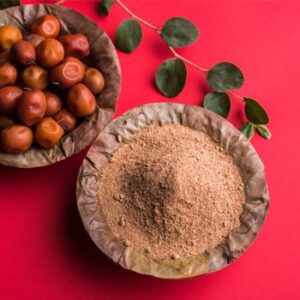Description
Specification
Botanical Name
- Myristica fragrans
Common Names
- Nutmeg
- Fragrant nutmeg
- True nutmeg
Forms
- Whole Seed: The entire nutmeg seed, which can be grated fresh.
- Ground Spice: Nutmeg ground into a fine powder for culinary use.
- Mace: The dried lacy aril (seed covering) of the nutmeg seed, also used as a spice.
Origin
- Native Region: The Moluccas (or Spice Islands) of Indonesia.
- Cultivation: Widely cultivated in tropical regions including Indonesia, Grenada, India (especially in Kerala), Malaysia, and Sri Lanka.
Nutritional Benefits
- Essential Oils: Nutmeg contains essential oils such as myristicin, elemicin, eugenol, and safrole, which contribute to its flavor and potential health benefits.
- Vitamins and Minerals: Nutmeg is a source of vitamins like B-complex vitamins and minerals such as copper, potassium, calcium, manganese, iron, zinc, and magnesium.
- Antioxidants: It is rich in antioxidants that help fight free radicals and reduce oxidative stress.
Health Benefits
- Digestive Health: Nutmeg is known to stimulate digestion, relieve gas, and alleviate symptoms of indigestion.
- Pain Relief: Traditionally used to relieve pain due to its anti-inflammatory properties.
- Brain Health: Some compounds in nutmeg, like myristicin, are believed to enhance cognitive function and potentially protect against neurodegenerative diseases.
- Detoxification: Nutmeg supports liver health and aids in the detoxification process.
- Sleep Aid: Often used as a natural remedy for insomnia, nutmeg can help induce sleep.






